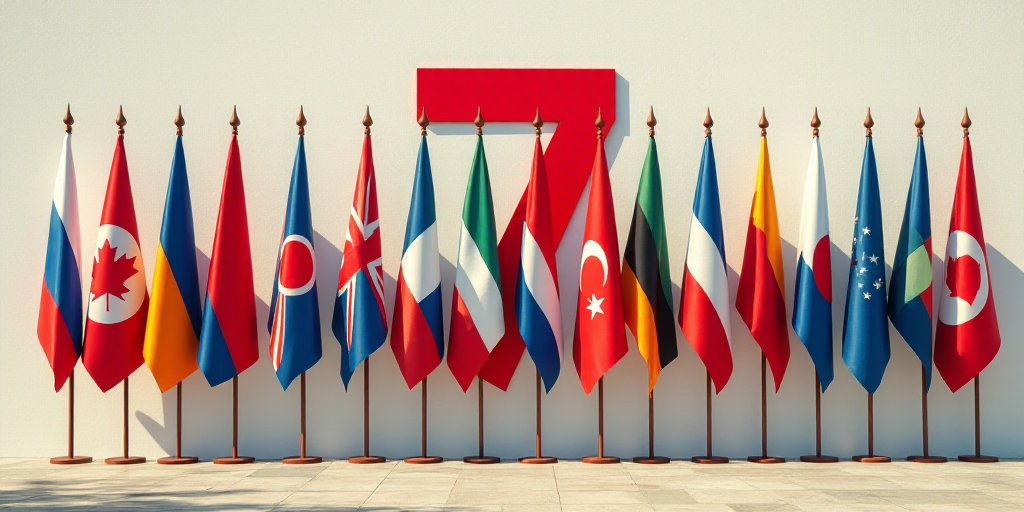Background on the Situation
For decades, international business and trade relations have been established, but these are now being disrupted by a wave of import tariffs imposed by U.S. President Donald Trump.
G7 Business Leaders’ Recommendations
Leaders from the advanced economies of the G7 urged member countries to remove trade barriers and invest in critical minerals to reduce vulnerabilities in the supply chain, according to a statement released on Friday.
Business entities and trade organizations from G7 countries gathered in Ottawa to provide recommendations to Canada, the host country, ahead of the upcoming G7 Leaders’ Summit in Kananaskis, Alberta.
Next week, Canada will also host a meeting of finance ministers and central bank chiefs as a prelude to the summit.
Impact of Trump’s Tariffs
Some countries are negotiating agreements with Trump, but economists have warned that a minimum tariff will remain even if trade deals are signed with the U.S., resulting in higher prices, job losses, lower profits, and slower economic growth.
“This evolving landscape requires a renewed model of economic cooperation among G7 members and like-minded countries,” said Candace Laing, President of the Canadian Chamber of Commerce and the B7 business leaders group within the G7.
Countries should prioritize building resilient supply chains and strengthening the G7’s competitive advantage in critical and emerging technologies, according to the statement.
Key Questions and Answers
- What is the main issue at hand? The disruption of established international business and trade relations due to import tariffs imposed by U.S. President Donald Trump.
- Who are the key players involved? Leaders from advanced economies of the G7, along with business entities and trade organizations from G7 countries.
- What are the recommended actions? Remove trade barriers, invest in critical minerals, prioritize resilient supply chains, and strengthen the G7’s competitive advantage in critical and emerging technologies.
- What are the potential consequences of Trump’s tariffs? Higher prices, job losses, lower profits, and slower economic growth.






